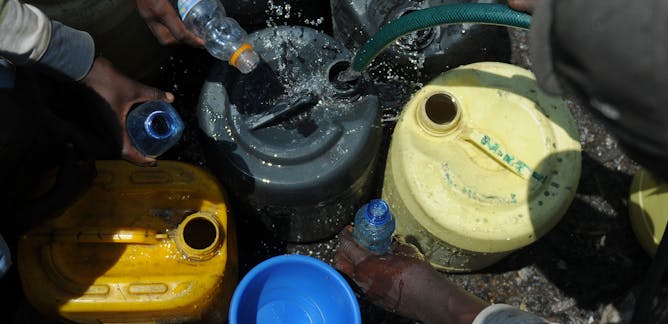
Articles sur Bacteria
Affichage de 1 à 20 de 377 articles

Nigeria is prone to a variety of factors that lead to recurring cholera outbreaks.

Enigmatic organisms called archaea can harvest energy from hydrogen, and new research is revealing exactly how they do it.

There are more antibiotics being developed today than there were a few years ago, but the antibiotic-resistance problem remains critical.

A uniquely identifying population of bacteria can survive on clothes for months after a person wears them.

Taking care of your smile could prevent disease elsewhere in the body.

Ever been made to feel small? Here’s why being petite is no bad thing.

Organisms that produce synthetic fuel and suck carbon out of the air are just some of the possibilities of ‘engineering biology’ – if policymakers can shepherd the industry towards success.

From synthetic fabrics to car exhaust to wildfires, exposure to environmental pollutants push the skin microbiome to adapt in ways that reduce its ability to protect the skin.

Gym equipment has multiple surfaces, nooks and crannies – all of which come into contact with many unwashed hands and sweaty bodies

There are many ways to kill microbes that cause dangerous infections. Combining genetic screening with machine learning can help researchers identify new antimicrobials.

If leftovers aren’t saved and reheated properly, it could put you at risk of food poisoning.

Your skin heals from cuts and scrapes on its own − what if concrete could do that too?

Yes, you need to wash them but no, you don’t need to use micellar water to do it.

Computer analysis of the genomes of extremophiles — organisms that live in extreme environments — reveals that their living conditions are recorded in their DNA.

The Nobel Prize-winning Luria−Delbrück experiment showed that random mutations in bacteria can allow them to develop resistance by chance.

New research suggests the gut bacteria of red and grey squirrels differ significantly, potentially explaining the decline of the native red and the success of its grey counterpart.

Chronic UTIs come back repeatedly or never fully go away despite treatment.

The organisms living in your gut microbiome can influence your mental and physical health. Researchers have developed a way to better test for those biological effects.

The science of smell is an exciting area of research.

New technology could unlock the soil-enriching nitrogen-fixing ability of legumes…and one day apply this to other crops too.
